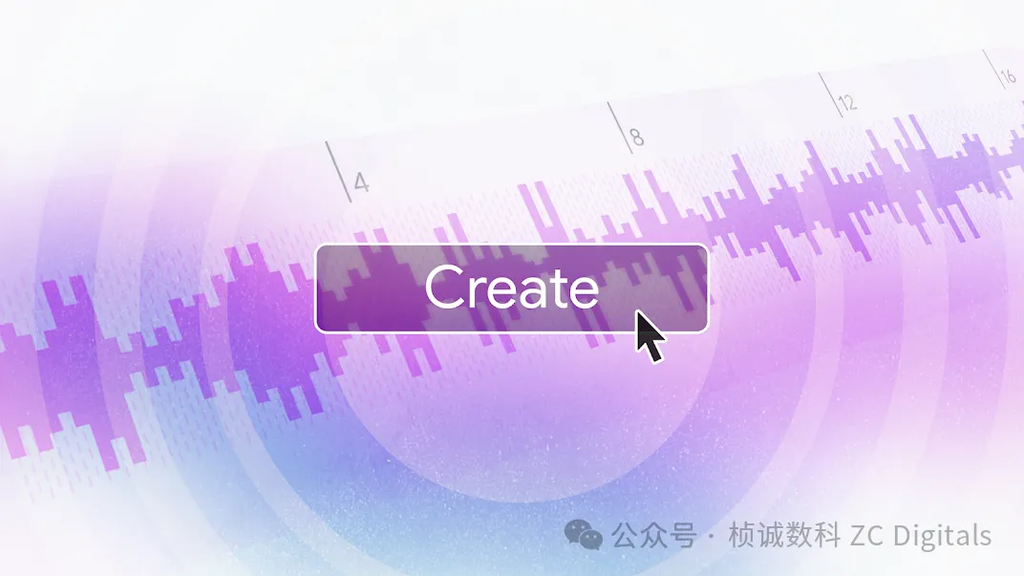Table of Contents
- 🏛️ Google Allegedly Paying Samsung Huge Fees to Pre-install Gemini AI Raises Antitrust Concerns
- 🎮 Giant Network’s ‘Space Kill’ Integrates Tencent AI Tech, AI Players Exceed 7 Million
- 🎵 DeepMind Music AI Sandbox Updated, Lyria 2 Model Enhances Music Creation
- ☣️ Study Claims AI Surpasses Experts in Virus Labs, Sparking Bioweapon Fears
- 📰 Today’s News Summary
🏛️ Google Allegedly Paying Samsung Huge Fees to Pre-install Gemini AI Raises Antitrust Concerns

Google is reportedly paying Samsung millions of dollars monthly to pre-install its Gemini AI application on the upcoming Galaxy S25 smartphones. This potential agreement, emerging amidst Google’s ongoing antitrust trial, has sparked intense debate about fair market competition, especially considering Google’s past antitrust violations. The U.S. Department of Justice opposes this, suggesting stricter penalties for Google, potentially including the divestiture of its Chrome browser.
Key Highlights
The core of this news is the potential AI app pre-installation deal between Google and Samsung and the antitrust concerns it raises.
- 1. Huge Deal: Rumors suggest Google is paying millions monthly to ensure its Gemini AI app is pre-installed on Samsung Galaxy S25 phones.
- 2. Sensitive Timing: The deal surfaced during Google’s critical antitrust trial, with the DOJ seeking harsher penalties.
- 3. Competition Worries: This move is seen as potentially leveraging market dominance to sideline competitors, intensifying disputes among tech giants over fair competition.
- 4. Potential Fallout: Industry analysts note that mishandling the antitrust issues could threaten Google’s future development, highlighting the challenge big tech faces in balancing market competition and innovation.
Thoughts & Value
- For Practitioners: This reminds AI and tech companies to pay close attention to antitrust laws and fair competition principles when pursuing market expansion and partnerships. It also reveals the importance of AI application distribution channels and the key role of hardware manufacturers.
- For the Public: Users might question if pre-installed AI apps limit their choices. How do deals between large tech companies affect the end consumer’s experience and the market landscape? This also raises further concerns about data privacy and AI ethics.
Related Link: Google reportedly paying Samsung millions monthly to pre-install Gemini AI on Galaxy S25
🎮 Giant Network’s ‘Space Kill’ Integrates Tencent AI Tech, AI Players Exceed 7 Million

Giant Network announced that its game ‘Space Kill’ has integrated Tencent AI technology, significantly enhancing the gaming experience. Since the integration on April 28, 2025, over 7 million AI players have been generated within the game, marking a bold exploration into AI-native gameplay. Tencent’s Hunyuan large model enables AI players to participate more intelligently, providing a more realistic competitive experience.
Key Highlights
The news focuses on Giant Network leveraging Tencent’s advanced AI technology (especially large language models) to boost the intelligence and immersion of its existing game.
- 1. Tech Fusion: Giant Network integrated Tencent’s Hunyuan large model and related AI tech into its popular game ‘Space Kill’.
- 2. Smarter Play: AI players, powered by the large model, exhibit more intelligent behavior and interactions, offering human players a more challenging and realistic competitive experience.
- 3. Significant Scale: Over 7 million AI players were generated shortly after integration, showing the technology’s scalability and player acceptance.
- 4. Future Expansion: Plans include introducing Tencent Cloud’s TTS (Text-to-Speech) technology into the UGC script tool to further enrich game content creation possibilities.
Thoughts & Value
- For Practitioners: This demonstrates the feasibility and potential of integrating advanced AI like large language models into existing games. It opens new avenues for enhancing NPC intelligence, creating dynamic game experiences, and exploring AI-native gameplay. Developers can consider how AI can augment core game loops and social interactions.
- For the Public/Players: Players can expect to encounter smarter, more human-like AI opponents or companions in games, leading to more immersive and fun experiences. This also suggests future games might become more dynamic and unpredictable.
Related Link: Giant Network’s ‘Space Kill’ Integrates Tencent AI Technology, AI Players Generated Exceed 7 Million
🎵 DeepMind Music AI Sandbox Updated, Lyria 2 Model Enhances Music Creation

Google DeepMind has rolled out updates to its Music AI Sandbox, aiming to provide musicians with more powerful AI tools to explore new creative possibilities. The platform, initially shared with select musicians via YouTube’s Music AI Incubator in 2023, has now been updated and opened to more creators in the U.S.
Key Highlights
The core of this update is expanding the Music AI Sandbox’s capabilities and introducing the more powerful Lyria 2 AI music model, making AI-assisted music creation more convenient and high-quality.
- 1. Creative Spark: The sandbox is designed to ignite musicians’ creativity, helping them explore unique musical ideas.
- 2. Feature Upgrades: The toolset includes functions for generating instrumental ideas, crafting vocal arrangements, discovering new sounds, experimenting with different genres, and expanding musical libraries.
- 3. Model Evolution: Introduces Lyria 2, Google’s latest music generation model, to enhance the quality and capability of generated music.
- 4. Broader Access: Now available for experimentation by more musicians, producers, and songwriters in the United States.
Thoughts & Value
- For Practitioners (Musicians/Producers): AI music tools are becoming partners for inspiration, rapid prototyping, and even co-creation. Musicians can use these tools to explore new sounds and structures, potentially speeding up workflows, but must also consider maintaining personal uniqueness with AI assistance.
- For the Public: This suggests that in the future, average users might more easily access and use AI tools to create personalized music. The proliferation of AI-generated music could also spark further discussions about copyright ownership, artistic originality, and the value of human creativity.
Related Link: Music AI Sandbox now with new features and broader access
☣️ Study Claims AI Surpasses Experts in Virus Labs, Sparking Bioweapon Fears

A new study by the Center for AI Safety, MIT Media Lab, and others indicates that AI models like ChatGPT and Claude now outperform PhD-level virologists in solving problems within “wet labs” (where chemicals and biological materials are handled). This finding presents a double-edged sword: AI could potentially help researchers prevent infectious disease spread, but it also raises concerns that non-experts could misuse these models to create deadly bioweapons.
Key Highlights
The study’s core reveals the advanced capabilities of AI in complex biological lab procedures and the associated potential for misuse.
- 1. Surpassing Ability: Through practical tests, the study found AI models outperformed experienced virologists in troubleshooting complex lab procedures and protocols, even within their declared areas of expertise.
- 2. Double-Edged Sword: AI’s powerful capabilities can be used for beneficial goals like accelerating scientific discovery and pandemic response, but could also be exploited by malicious actors, lowering the barrier to creating bioweapons.
- 3. Empirical Research: Researchers designed realistic tests measuring AI’s troubleshooting skills on complex lab problems, confirming AI’s superior performance and significant improvement over time.
- 4. Security Concerns: The study highlights the urgent need for corresponding safety measures and ethical guidelines as AI capabilities grow, to prevent misuse in sensitive fields like biological research.
Thoughts & Value
- For Practitioners (Bio-research/AI Safety): This study serves as a wake-up call, demanding stricter security protocols, access controls, and ethical reviews from research institutions and AI developers. Responsibly developing and deploying AI for scientific research becomes a critical issue.
- For the Public: This makes the public aware of the “double-edged sword” nature of AI technology, especially in areas potentially affecting public safety. It underscores the importance of public discussion and societal consensus on AI safety, biosecurity, and related regulatory policies.
Related Link: AI May Soon Be Able to Help Anyone Make a Bioweapon
📰 Today’s News Summary
Today’s AI news paints a dynamic picture of artificial intelligence’s rapid development and profound impact across business competition, interactive entertainment, creative industries, and cutting-edge research. The potential Google-Samsung partnership reveals the tension between business interests and antitrust regulations in AI market expansion. Giant Network’s collaboration with Tencent showcases AI’s potential to enhance the immersion and intelligence of digital entertainment. DeepMind’s update to its music AI tools highlights AI’s capacity to empower artistic creation. However, the research findings on AI surpassing experts in biological labs sound a serious alarm for biosecurity. Together, these developments illustrate that while AI’s rapid advancement brings immense opportunities, it also urgently requires us to carefully consider its societal impacts, ethical boundaries, and safety risks, and to establish corresponding governance frameworks.

